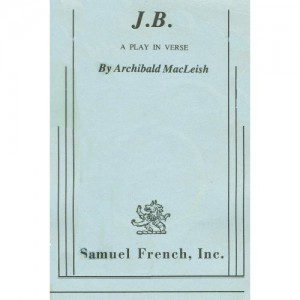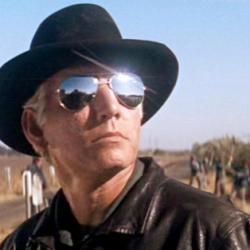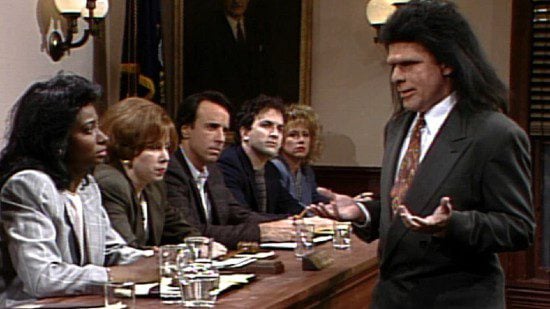I heard upon his dry dung heap
That man cry out who cannot sleep:“If God is God He is not good,
If God is good He is not God;
Take the even, take the odd,
I would not sleep here if I could
Except for the little green leaves in the wood
And the wind on the water.”— Archibald MacLeish, in J.B.
When the girls were younger I was really good at helping with their homework. My helpfulness has diminished as they’ve gotten further along in school — with me only able to answer chemistry questions for about the first two weeks of the year, and being no use at all in helping with German.
But this week the older daughter had an assignment that was right in my wheelhouse: A paper on J.B. by Archibald MacLeish. I know that play. I love that play. And I’m intimately familiar with the source material.
It is, however, kind of a bleak play for a high school literature class. And they’re following it up next with Kafka’s “Metamorphosis” and then Camus’ The Stranger. So not a very cheerful spring semester in Honors English. It seems my daughter’s teacher may agree with this bit from J.B.:
Best thing you can teach your children
Next to never drawing breath
Is choking on it.
And now I’m trying to think of some cheery, optimistic work brimming with hope that the students might read after all this gloom. Not sure what that would be.
 The J.B. paper was a great chance to kick around the big questions, the perennial questions, the impossible questions. I was worried when she first described the assignment that it was a two-page paper in which she had to resolve the problem of evil, but her teacher actually did a good job of urging students to engage those questions without feeling like they had to settle them. The teacher — and MacLeish — made it clear that those questions were only settled for people like Bildad, Zophar and Eliphaz, and that we shouldn’t think of them as role models.
The J.B. paper was a great chance to kick around the big questions, the perennial questions, the impossible questions. I was worried when she first described the assignment that it was a two-page paper in which she had to resolve the problem of evil, but her teacher actually did a good job of urging students to engage those questions without feeling like they had to settle them. The teacher — and MacLeish — made it clear that those questions were only settled for people like Bildad, Zophar and Eliphaz, and that we shouldn’t think of them as role models.
I’d love to see J.B. performed, but I’ve never gotten a chance to do that. Re-reading it this week though I was struck by how much MacLeish seems to share my belief that the biblical book of Job was, itself, written as a play. He even has the God and Accuser characters don the masks that I believe the original performers of the original play would have worn.
On that point, here’s a question for biblical scholar types: Our English translations of Job include references to Orion and the Pleiades. Those are the Greek names we use for those constellations, but my linguistic skills aren’t up to answering the question of whether or not the author of Job also used those Greek names. So I guess my question is really two questions: 1) Do these names, Orion and Pleiades, suggest that the author of Job was familiar with Greek culture and influence? and 2) If so, is it fair to suggest that this might support the idea that Job is structured much like an early Greek play (complete with a narrative chorus and a deus ex machina)?
One way MacLeish departs from the original play is to dispense with the proto-Calvinist character Elihu. He keeps the young man’s argument, though, putting it into the mouths of the other three un-comforting comforters. And instead of Job and God responding to it, MacLeish has Job’s wife, Sarah, handle that rebuttal:
J.B.: God is just.
SARAH: God is just!
If God is just our slaughtered children
Stank with sin, were rotten with it!Oh, my dear! my dear! my dear!
Does God demand deception of us? —
Purchase His innocence by ours?
Must we be guilty for Him? — bear
The burden of the world’s malevolence
For Him who made the world?… They are
Dead and they were innocent: I will not
Let you sacrifice their deaths
To make injustice justice and God good!
Anyway, if you’ve not read J.B., I heartily recommend it. It’s a ferocious, but faithful, adaptation of the original.
And if you’ve ever seen it staged — or been part of a production — I’d love to hear what that was like.












